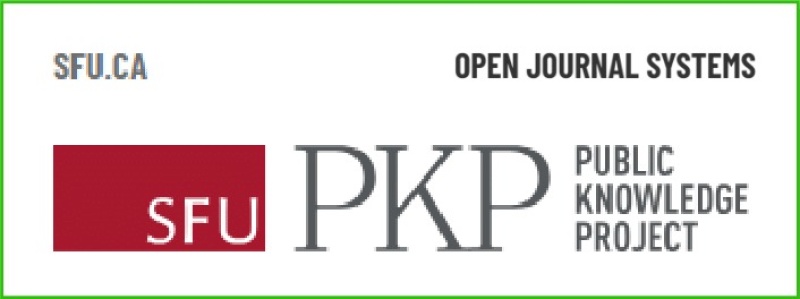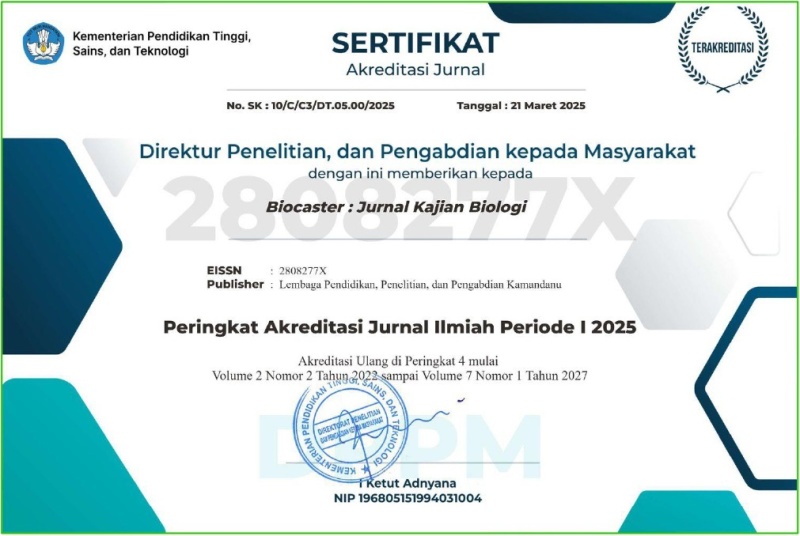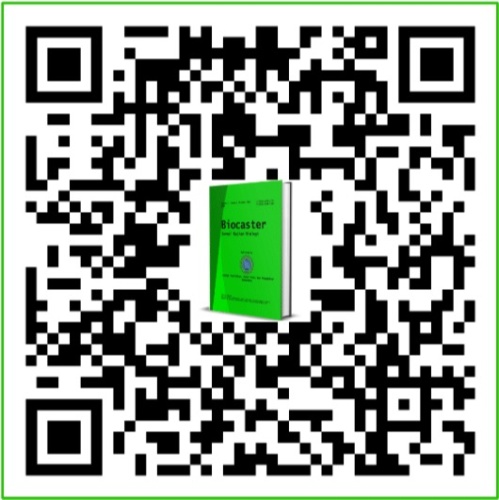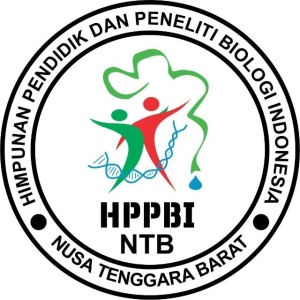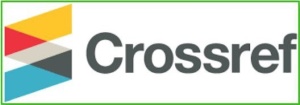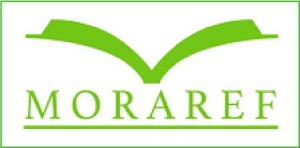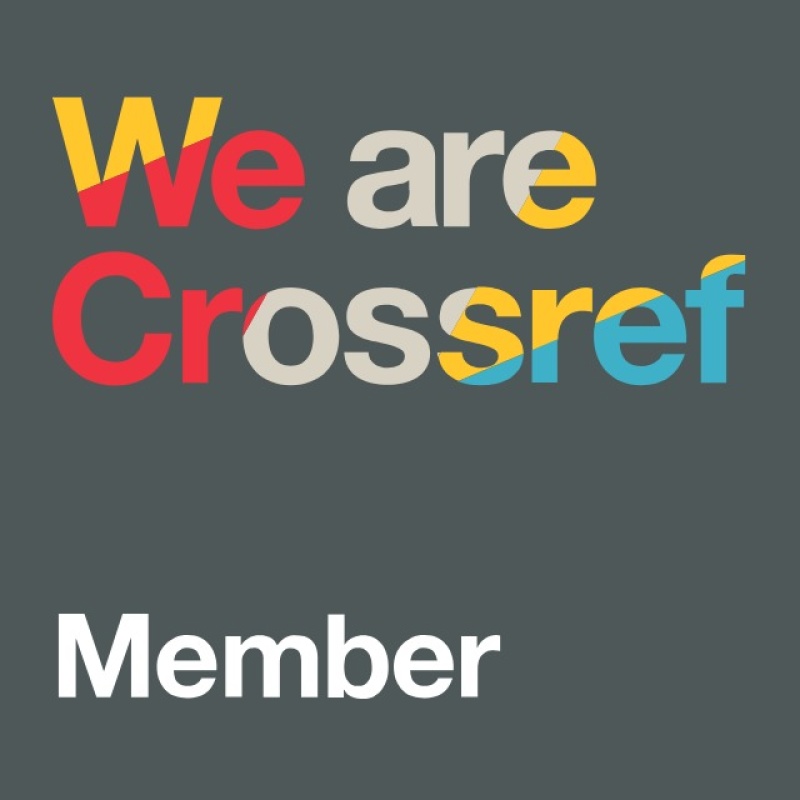Peningkatan Motivasi dan Hasil Belajar Kognitif Biologi dengan Menggunakan Model Pembelajaran Kooperatif Tipe The Learning Cell
DOI:
https://doi.org/10.36312/biocaster.v4i2.253Keywords:
Learning Motivation, Cognitive Learning Outcomes, Cooperative Learning, The Learning Cell.Abstract
The lack of student participation in learning is caused by teachers not paying attention to students' psychological conditions, so that students experience difficulties in learning which has an impact on low motivation and student learning outcomes. The effectiveness of learning, learning motivation and learning outcomes need to be improved through a learning process using a cooperative model of The Learning Cell type, namely a concept that places more emphasis on raising questions which is the key to learning. The purpose of this research is to determine the increase in motivation and cognitive learning outcomes of students using the cooperative learning model type The Learning Cell. The type of research used is classroom action research which consists of two cycles, each cycle consisting of two meetings. This research measures the results of observations of the implementation of teacher and student activities, motivation and cognitive learning outcomes of students using observation sheets on the implementation of teacher and student activities, as well as questionnaires and evaluation tests. The results of the research show that the percentage of implementation of the results of observing teacher activities in cycle I was 82.57% which was included in the good category and cycle II increased with a percentage of 89.28% in the very good category, while the results of observing the implementation of student activities in cycle I was with a percentage of 60. % in the quite active category and increased in cycle II with a percentage of 85% in the very active category. Student motivation was obtained from the distribution of questionnaires in the first cycle which was in the good category at 80.60% and in the second cycle it increased to 82.56%, still in the good category. Student cognitive learning outcomes are obtained from evaluation tests that have been prepared and distributed to students at the end of each cycle, in cycle I it was 65%, so students were not yet said to be classically complete and continued in cycle II which experienced an increase of 87%, so student learning outcomes on the subject of interdependence in ecosystems, it is stated to be classically complete. Based on these results, it can be concluded that by implementing the cooperative learning model of The Learning Cell type, it can increase the motivation and cognitive learning outcomes of Biology students at SMP Negeri 2 Kayangan.
Downloads
References
Arikunto, S. (2006). Prosedur Penelitian Suatu Pendekatan Praktek. Jakarta: PT. Rineka Cipta.
______. (2010). Prosedur Penelitian Suatu Pendekatan Praktik (Edisi Revisi 2010). Jakarta: PT. Rineka Cipta.
Ariningsih, N. L. T., Fitriani, H., & Safnowandi, S. (2023). Pengaruh Model Pembelajaran Student Teams Achievement Division (STAD) terhadap Motivasi dan Hasil Belajar Kognitif Siswa. Educatoria : Jurnal Ilmiah Ilmu Pendidikan, 3(4), 248-261. https://doi.org/10.36312/educatoria.v3i4.214
Djamarah, S. B. (2012). Prestasi Belajar dan Kompetensi Guru. Surabaya: Usaha Nasional.
Romadhoni, J., Rahmawati, N. K., & Kurniawan, B. (2021). Hubungan Motivasi Belajar Siswa dengan Hasil Belajar Matematika. In Prosiding Seminar Nasional Pendidikan STKIP Kusuma Negara III (pp. 31-34). Jakarta, Indonesia: STKIP Kusuma Negara.
Stevani, H., Andriani, R., & Fijriani, F. (2019). Analisis Kondisi Psikologis Siswa dan Implikasinya terhadap Program Bimbingan dan Konseling. Enlighten : Jurnal Bimbingan dan Konseling Islam, 2(2), 62-67. https://doi.org/10.32505/enlighten.v2i2.1343
Sudjana, N. (2003). Teknologi Pengajaran. Bandung: Sinar Baru Algensindo.
Sugiyono. (2009). Metode Penelitian Kuantitatif, Kualitatif dan R&D. Bandung: CV. Alfabeta.
Suprijono, A. (2009). Cooperative Learning: Teori dan Aplikasi Paikem. Yogyakarta: Pustaka Pelajar.
Undang-Undang Nomor 20 Tahun 2003 tentang Sistem Pendidikan Nasional. 2003. Jakarta: JDIH BPK RI.
Wahyuni, E. (2017). Implementasi Teknik Learning Cell pada Pelajaran Bahasa Indonesia Kelas X. Jurnal Inovasi Pendidikan, 1(1), 64-74.
Wardani. (2003). Penelitian Tindakan Kelas. Bandung: PT. Remaja Rosdakarya.
Winardi. (2018). Peningkatan Hasil Belajar Sejarah melalui Pembelajaran Kooperatif Model STAD Kelas X MIPA-3 SMA Negeri 4 Pekalongan Tahun 2016. Jurnal Pendidikan Ilmu Pengetahuan Sosial Indonesia, 1(5), 81-99. https://doi.org/10.21831/jipsindo.v5i1.20185
Yunikasari, D. (2014). Peningkatan Motivasi Belajar Matematika melalui Model Pembelajaran Quantum Teaching pada Siswa Kelas V SDN 2 Sumberagung Jetis, Bantul. Skripsi. Universitas Negeri Yogyakarta.

Downloads
Published
How to Cite
Issue
Section
License
Copyright (c) 2024 Nurcholifatun

This work is licensed under a Creative Commons Attribution-ShareAlike 4.0 International License.
-
Attribution — You must give appropriate credit, provide a link to the license, and indicate if changes were made. You may do so in any reasonable manner, but not in any way that suggests the licensor endorses you or your use.
-
ShareAlike — If you remix, transform, or build upon the material, you must distribute your contributions under the same license as the original.

